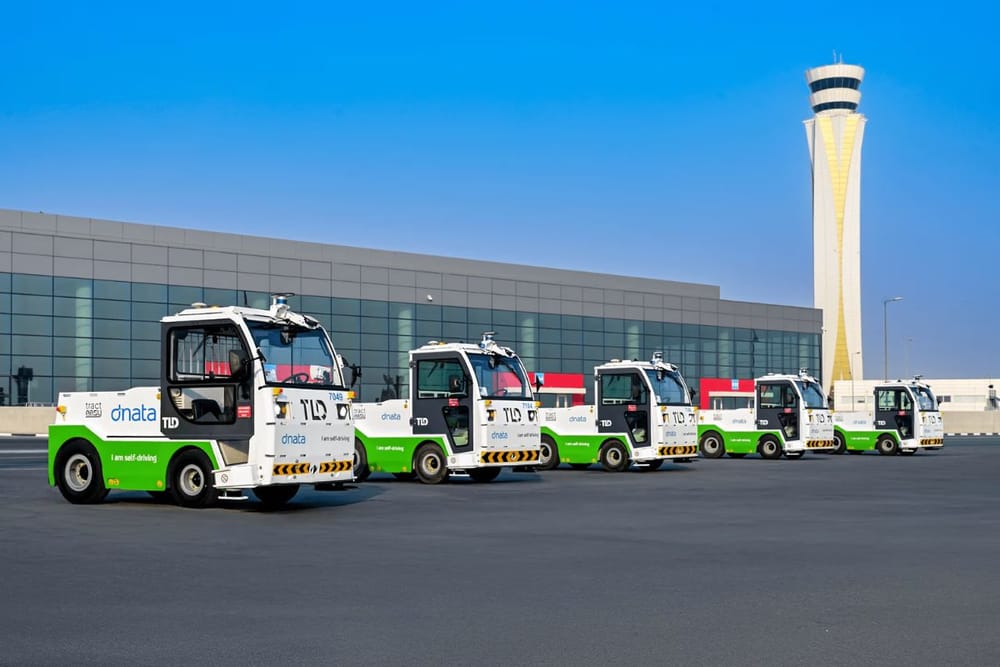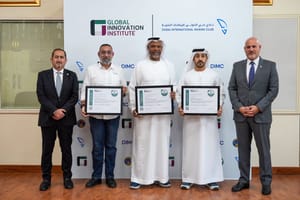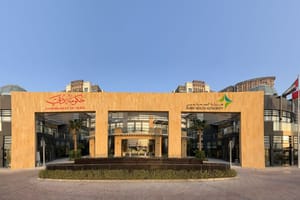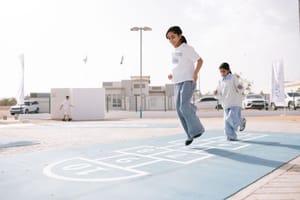dnata has introduced autonomous ground support vehicles at Dubai World Central – Al Maktoum International (DWC), marking a significant advancement in automating airport ramp operations.
The move is part of a broader effort to streamline one of the most labour- and time-intensive areas in aviation—ground handling.
The rollout includes six EZTow electric baggage tractors, developed by TractEasy. These autonomous vehicles can tow up to four baggage containers at speeds of up to 15 km/h along predefined routes. By automating baggage movement between terminals and aircraft, dnata aims to reduce human error, enhance airside safety, and reassign drivers to more complex operational tasks that add value and speed up aircraft turnarounds.
This AED 6 million (USD $1.6 million) initiative begins with Level 3 autonomy, which allows for limited human intervention, and is expected to evolve into Level 4 full autonomy by early 2026. The deployment also serves as a testbed for future large-scale automation at DWC, which is set to become the world’s largest airport with a planned capacity of 260 million passengers and 12 million tonnes of cargo annually.
Jaffar Dawood, Divisional Senior Vice President for UAE Airport Operations at dnata, said:
“This is an important step forward for both dnata and the wider aviation industry… automation could be key to building smarter, safer and more resilient infrastructure.”
Rich Reno, CEO of TractEasy, added:
“TractEasy is proud and excited to partner with an industry leader like dnata and blaze a safe and efficient autonomous trail for others to follow.”
The project was developed in collaboration with Dubai Airports and the UAE General Civil Aviation Authority (GCAA), who are jointly working on creating regulatory frameworks for autonomous vehicles in airside environments—a largely unregulated area globally.
News Source: Dubai Media Office









